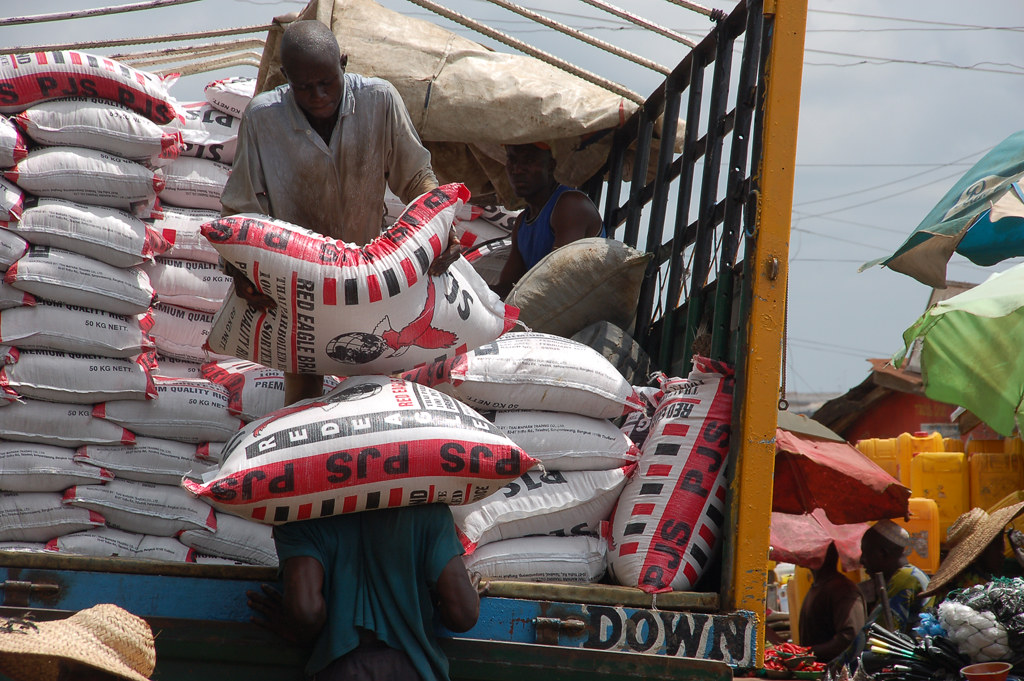According to data from the Central Bank of Nigeria, domestic rice production stands at about 7 million metric tonnes, while annual demand hovers around 10.5 million metric tonnes, leaving a supply gap of roughly 2.5 million tonnes.
To close that gap, the country spends over $2 billion annually importing rice from Asia, draining foreign exchange and weakening local value chains.
Based on this, the Nigerian senate has endorsed the establishment of a National Rice Development Council, intended to serve as a unifying platform for developing, coordinating and sustaining rice programmes across the nation.
Why the council matters
The council, as proposed in the bill, would be responsible for driving innovation in seed systems, improving mechanisation and irrigation, supporting local processing, ensuring quality standards, and promoting self-sufficiency in rice production.
This proposal aligns closely with President Tinubu’s Renewed Hope Agenda for agricultural transformation and the National Rice Development Strategy II (2020–2030), boosting Nigeria’s position in Africa’s rice economy.
The senate’s decision follows years of persistent challenges within the rice sector: low yields, poor irrigation infrastructure, weak mechanisation and inconsistent policy direction.
Many farmers still depend on manual labour and rain-fed cultivation, which exposes them to unpredictable weather patterns and seasonal risks.
Despite a rise in the number of local mills and government interventions through the Anchor Borrowers’ Programme and various state-level initiatives, productivity remains below potential.
On average, yields from Nigeria’s rice farms hover between 2-3 tonnes per hectare, compared to 5.8 tonnes achieved in countries like Vietnam or Thailand under modernised irrigation and seed systems.
The proposed National Rice Development Council, therefore, seeks to provide a centralised and permanent framework to coordinate all rice-related policies and programmes.
Advocates of the bill stress that it would help avoid duplication among government agencies, create synergy between farmers, researchers, processors, and marketers and ensure that interventions are data-driven and sustainable.
Nigeria’s reliance on rice imports has long been seen as a paradox, for a country blessed with fertile land and favourable agro-climatic conditions continues to spend billions importing a crop it could easily produce.
One of the most persuasive arguments for the council is that it could bring long-term stability to rice governance. In the past, the country has seen a patchwork of rice programmes: each ambitious in design but often short-lived.
With no single institution charged with overseeing the entire value chain, many efforts faded after initial funding or changes in political leadership.
A council with statutory powers could serve as a policy anchor, ensuring continuity in research, production, and trade. It could also facilitate coordination among federal, state, and private actors.
Another critical promise lies in the area of research and innovation. Nigeria’s rice yields remain significantly below global standards largely because of limited access to quality seeds, insufficient extension services, and weak adoption of modern technologies.
A National Rice Council could prioritise partnerships between universities, agricultural research institutes, and private-sector actors to develop high-yield and climate-resilient seed varieties. It could also drive investments in mechanisation and digital agriculture, which are two areas where Nigeria lags behind.
For instance, estimates show that fewer than 10% of Nigeria’s farmers, including rice farmers, use any form of mechanical equipment. As climate change continues to alter rainfall patterns, threaten water sources, and intensify flooding in lowland rice areas, investment in adaptive technologies will be indispensable.
There are also strong economic arguments. By raising domestic production and improving post-harvest processing, Nigeria could save a lot annually in import bills. In addition to reducing foreign exchange outflows, such reforms could stimulate rural economies, boost household incomes, and create thousands of jobs in cultivation, milling, logistics, and marketing.
Studies have shown that rice value chains can generate jobs for every hectare cultivated when properly mechanised and linked to processing facilities. The sector already employs millions informally, but with better coordination and market linkages, the potential scale of impact could be far greater.
The council could also help improve the competitiveness and perception of locally produced rice.
Raising the quality of local rice
For years, many Nigerian consumers have favoured imported rice due to its uniform grain size and higher swelling capacity.
However, these advantages are results of better processing and quality control in exporting countries. Local rice has struggled with poor destoning, inconsistent packaging and contamination from storage pests.
Through a dedicated agency focusing on standardisation, branding, and fortification, Nigerian rice could begin to rival imported varieties in quality and consumer appeal.
Already, the success of the Imota Rice Mill in Lagos, one of the largest in Africa, shows that quality improvement and scale are possible when governance and investment align.
Despite its merits, the proposed bill is not without risks. Nigeria’s agricultural landscape is replete with multiple institutions, including the Federal Ministry of Agriculture and Food Security, the National Cereals Research Institute and state-backed agricultural development projects.
Without clear lines of responsibility, the new council could duplicate existing mandates and become another bureaucratic layer consuming public funds without delivering tangible results. Effective governance, transparency, and a lean administrative structure will be essential to avoid institutional overlap.
Funding is another major concern. The success of any agricultural programme depends not only on its design but also on consistent financing. Nigeria’s history is replete with well-intentioned policies that failed due to poor funding, delayed releases or politicised disbursements.
Establishing a National Rice Development Council will require significant budgetary allocations to support research, infrastructure, and training programmes.
Without sustainable funding, possibly through dedicated levies, public-private partnerships, or development grants, the council risks becoming a ceremonial institution.
Implementation also remains a perennial challenge. The effectiveness of the council will depend heavily on the political will to enforce its mandates and the capacity of its leadership. Past agricultural interventions have suffered from weak monitoring, corruption, and uneven distribution of benefits.
For example, reports from the Anchor Borrowers’ Programme revealed issues of loan default, input diversion, and limited repayment culture among beneficiaries. If such systemic problems persist, the council’s programmes could face similar pitfalls.
Furthermore, insecurity in many rice-producing regions, especially in parts of the North Central and Northwest, has reduced the ability of farmers to access their fields, discouraging investments and disrupting production.
Another consideration is the balance of power between the federal government and the states. Agriculture in Nigeria is a concurrent responsibility, meaning both levels of government share authority. For the council to succeed, it must not impose a top-down approach but instead work collaboratively with state agricultural development programmes.
A decentralised model, perhaps with zonal offices and state liaison units, would be essential for contextual implementation. The diversity of Nigeria’s ecological zones demands tailored strategies as opposed to uniform national prescriptions.
Tackling smuggling
Despite government bans and high tariffs, imported rice continues to find its way into Nigerian markets through smuggling, undermining the competitiveness of local producers.
The council could lead such efforts by collaborating with the Standards Organisation of Nigeria and private millers to enforce strict quality benchmarks and certification systems.
Similarly, the youth population facing high unemployment could be mobilised into agribusiness with better training and access to finance. A forward-thinking council would integrate these groups as key beneficiaries, not as afterthoughts.
Supporting climate-smart and renewable energy-driven irrigation systems, as some stakeholders proposed during the Senate hearing, would also promote sustainability and reduce production costs in the long run.
The National Rice Development Strategy II (2020–2030) already outlines similar objectives: improving seed systems, enhancing irrigation and promoting value addition, but progress has been slow due to limited coordination and poor funding.
Institutional reform must therefore go beyond the creation of councils and focus on ensuring that these bodies function efficiently, transparently, and in partnership with local actors.
Summary not available at this time.






